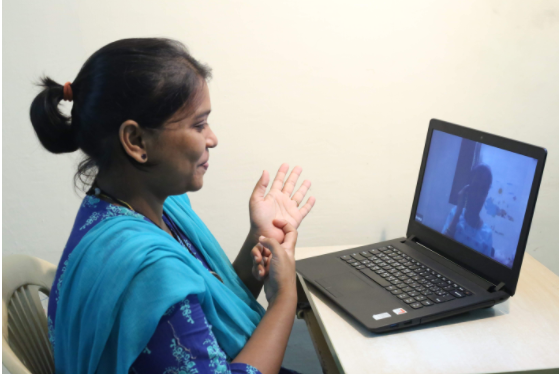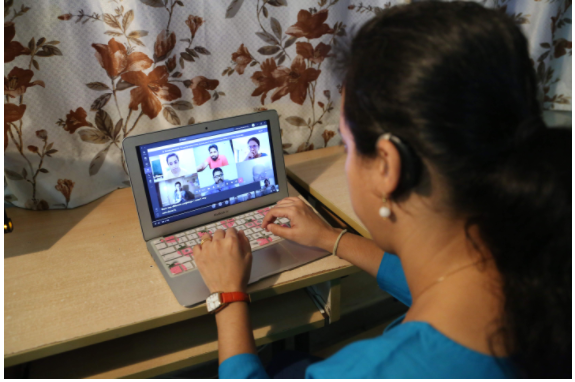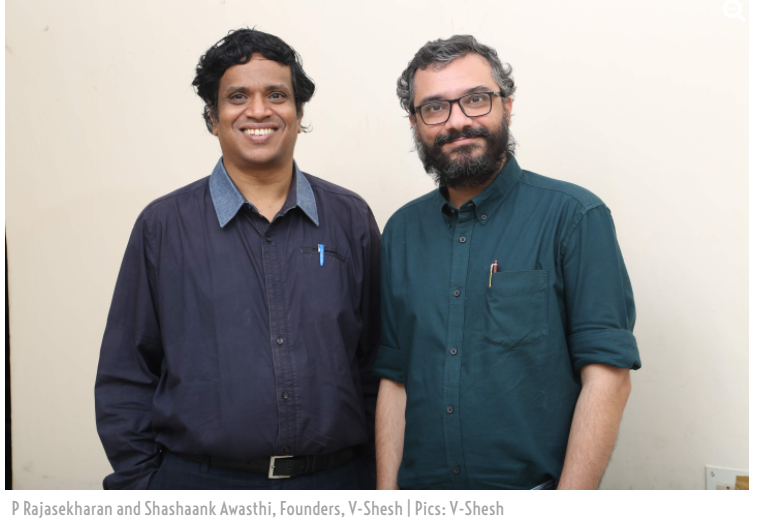We speak to P Rajasekharan, founder of Chennai-based V-Shesh, which has taken to upskilling differently-abled people onlineAbout
12 years ago, P Rajasekharan and Shashaank Awasthi began thinking about how the job market could be for a differently-abled person. Even if a person had the skill to become suitable for a particular job, it seldom happened that employers would be willing to hire them. They’d usually make an excuse for their disability and declare them incapable or unsuitable for the job. This got the duo thinking and they decided to launch V-Shesh, an organisation that’s working for the diff-abled to help them secure jobs. And how are they doing it? Through counselling, upskilling and reskilling.
Speaking about how the organisation works, founder Rajasekharan says, “We offer counselling, career guidance and training services to persons with disabilities across the spectrum — whether it’s intellectual, autism, vision, hearing or mobility. We also work with employers and organisations and interact with them at a policy level, engage in sensitisation workshops and culture change workshops. But what we mainly focus on is assisting in recruitment. As long as there’s no person with disability at the workplace and people are not interacting with them, then all the other work is meaningless.”

And that is exactly what V-Shesh aims to achieve — a sensitive and inclusive workplace. “Until and unless we reach a stage when the organisation is ready to start hiring, start including and providing good career progression to persons with disabilities, we stay with them,” says Rajasekharan. The organisation doesn’t charge any fee from the people seeking employment but charges a fee from the organisation hiring them.
A differently-abled candidate doesn’t have to pay a dime to get upskilled. Either the organisation sponsors their training or charitable wings like the NASSCOM Foundation pay for their training
V-Shesh operates in a systematic manner and ensures that they are able to reach the maximum number of differently-abled job seekers. Rajasekharan explains, “We plan our outreach programmes through social media and various government job portals and other portals. We focus on skilling them for jobs in the banking and IT sectors and that is where most of our candidates show interest in. Before COVID-19, most of these classes would have been conducted physically in our classrooms at our centres. Post the pandemic, we have shifted online and classes are now being conducted via Microsoft Teams.”

An online class on Microsoft Teams
The training process mostly involves teaching them some basic employable skills and soft skills. “The training is not just for cracking the interview but also important for them to not spend more time training once they are recruited. Post-COVID, we are also training and have equipped our job-seekers on how to navigate the digital space. This is how we partnered with Microsoft and got our entire entourage on Teams. We tried to simulate a physical working environment so that they can get the same experience they would have received otherwise,” says Rajasekharan.
V-Shesh has a team of about 40 people and around 40% of them, which is around 15 people, are persons with disabilities
V-Shesh has provided employment to over 3,000 persons with disabilities and they ensure that they are placed in an environment that is inclusive and sensitive. But even after prolonged sensitisation efforts, sometimes it might just not work. What happens then? “We teach our candidates to have the temperament, self-advocacy to showcase the skills. At the same time, we also stipulate that the onus is on the organisation to ensure that their employees are sensitive and trained enough to provide an inclusive ecosystem. The differently-abled already have enough of a burden to deal with and shouldn’t have to deal with additional stress,” says Rajasekharan.
Article Credit: edexlive
